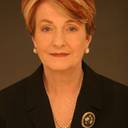ReachMD
Be part of the knowledge.™Public Profile
close
Affiliations STAR (Standing for Truth About Radiation) Foundation, Nuclear Policy Research Institute (NPRI),
The single most articulate and passionate advocate of citizen action to remedy the nuclear and environmental crises, Dr Helen Caldicott, has devoted the last 35 years to an international campaign to educate the public about the medical hazards of the nuclear age and the necessary changes in human behavior to stop environmental destruction.
Born in Melbourne, Australia in 1938, Dr Caldicott received her medical degree from the University of Adelaide Medical School in 1961. She founded the Cystic Fibrosis Clinic at the Adelaide Children's Hospital in 1975 and subsequently was an instructor in pediatrics at Harvard Medical School and on the staff of the Children's Hospital Medical Center, Boston, Mass., until 1980 when she resigned to work full time on the prevention of nuclear war.
In 1971, Dr Caldicott played a major role in Australia's opposition to French atmospheric nuclear testing in the Pacific; in 1975 she worked with the Australian trade unions to educate their members about the medical dangers of the nuclear fuel cycle, with particular reference to uranium mining.
While living in the United States from 1977 to 1986, she co-founded the Physicians for Social Responsibility, an organization of 23,000 doctors committed to educating their colleagues about the dangers of nuclear power, nuclear weapons and nuclear war. On trips abroad she helped start similar medical organizations in many other countries. The international umbrella group (International Physicians for the Prevention of Nuclear War) won the Nobel Peace Prize in 1985. She also founded the Women's Action for Nuclear Disarmament (WAND) in the US in 1980.
Returning to Australia in 1987, Dr Caldicott ran for Federal Parliament as an independent. Defeating Charles Blunt, leader of the National Party, through preferential voting she ultimately lost the election by 600 votes out of 70,000 cast.
She moved back to the United States in 1995, lecturing at the New School for Social Research on the Media, Global Politics and the Environment, hosting a weekly radio talk show on WBAI (Pacifica), and becoming the Founding President of the STAR (Standing for Truth About Radiation) Foundation.
Dr Caldicott has received many prizes and awards for her work, most recently the Lannan Foundation's 2003 Prize for Cultural Freedom, 19 honorary doctoral degrees, and was personally nominated for the Nobel Peace Prize by Linus Pauling - himself a Nobel Laureate. The Smithsonian Institute has named Dr Caldicott as one of the most influential women of the 20th Century. She has written for numerous publications and has authored seven books, Nuclear Madness, Missile Envy, If You Love This Planet: A Plan to Heal the Earth (1992, W.W. Norton) and A Desperate Passion: An Autobiography (1996, W.W. Norton; published as A Passionate Life in Australia by Random House), The New Nuclear Danger: George Bush’s Military Industrial Complex (2001, The New Press in the US, UK and UK; Scribe Publishing in Australia and New Zealand; Lemniscaat Publishers in The Netherlands; and Hugendubel Verlag in Germany), and Nuclear Power is Not the Answer (2006, The New Press in the US, UK and UK; Melbourne University Press in Australia). Dr. Caldicott’s most recent book is War In Heaven (March 2007).
She also has been the subject of several films, including Eight Minutes to Midnight, nominated for an Academy Award in 1981, If You Love This Planet, which won the Academy Award for best documentary in 1982, and Helen’s War: portrait of a dissident, recipient of the Australian Film Institute Awards for Best Direction (Documentary) 2004, and the Sydney Film Festival Dendy Award for Best Documentary in 2004.
Dr Caldicott currently divides her time between Australia and the US where she lectures widely. She is also the Founder and President of the Nuclear Policy Research Institute (NPRI),headquartered in Washington DC. NPRI’s mission is to facilitate a far-reaching, effective, ongoing public education campaign in the mainstream media about the often-underestimated dangers of nuclear weapons and power programs and policies.
